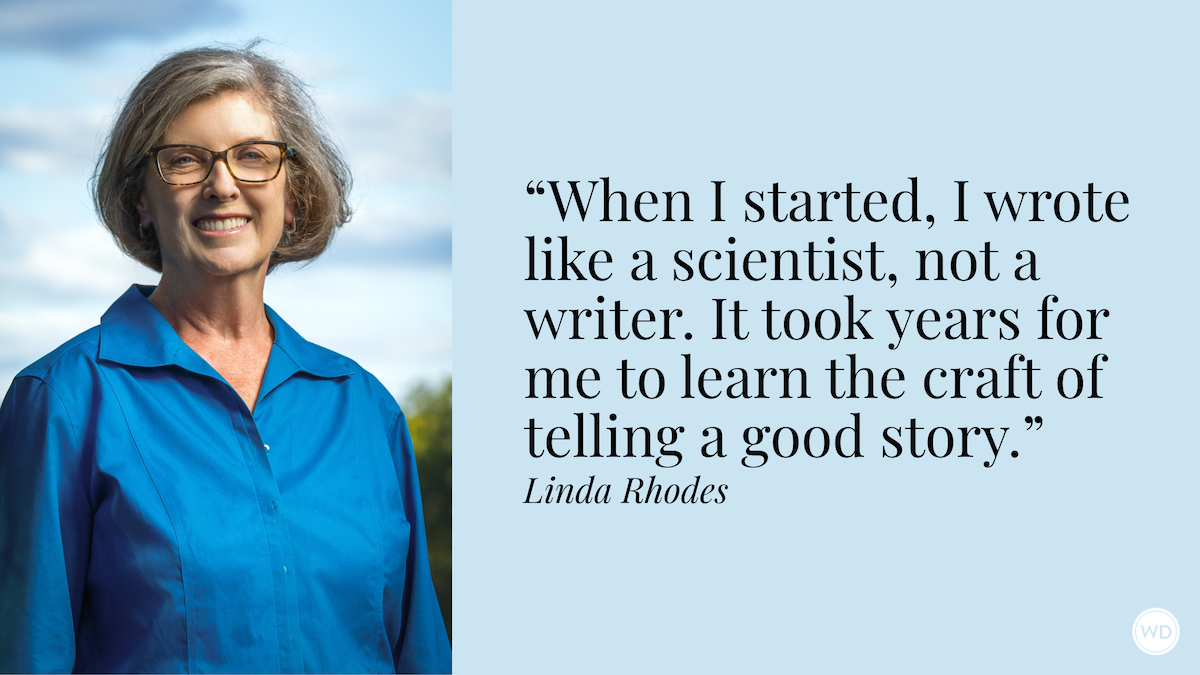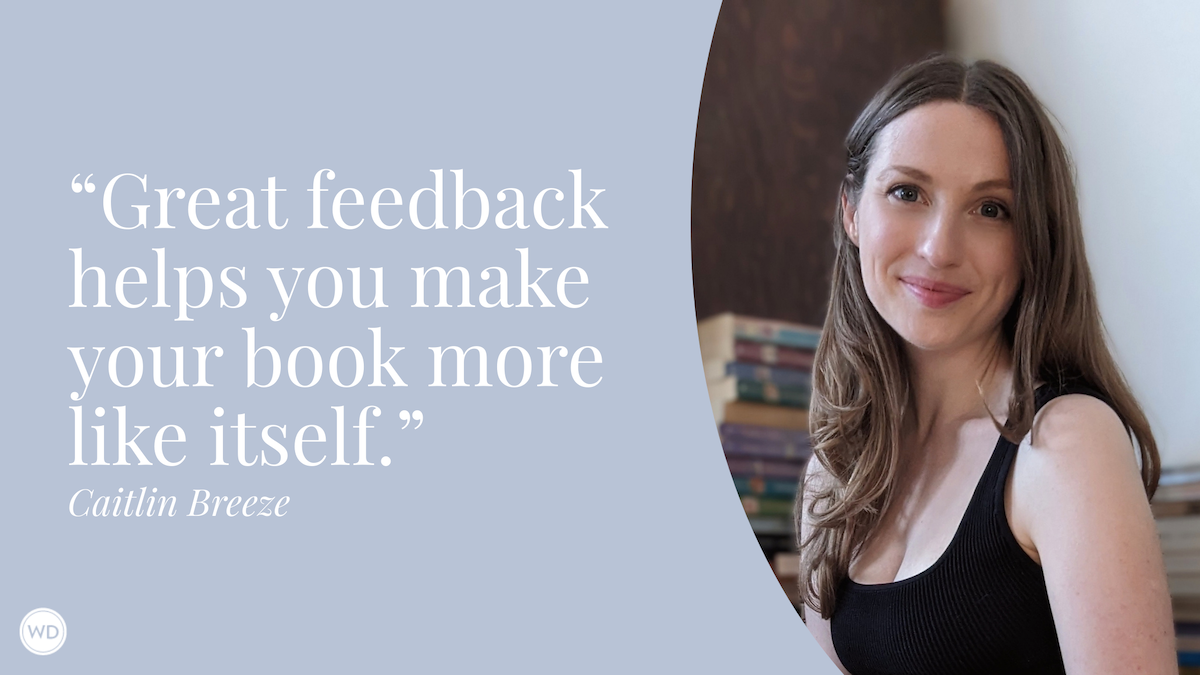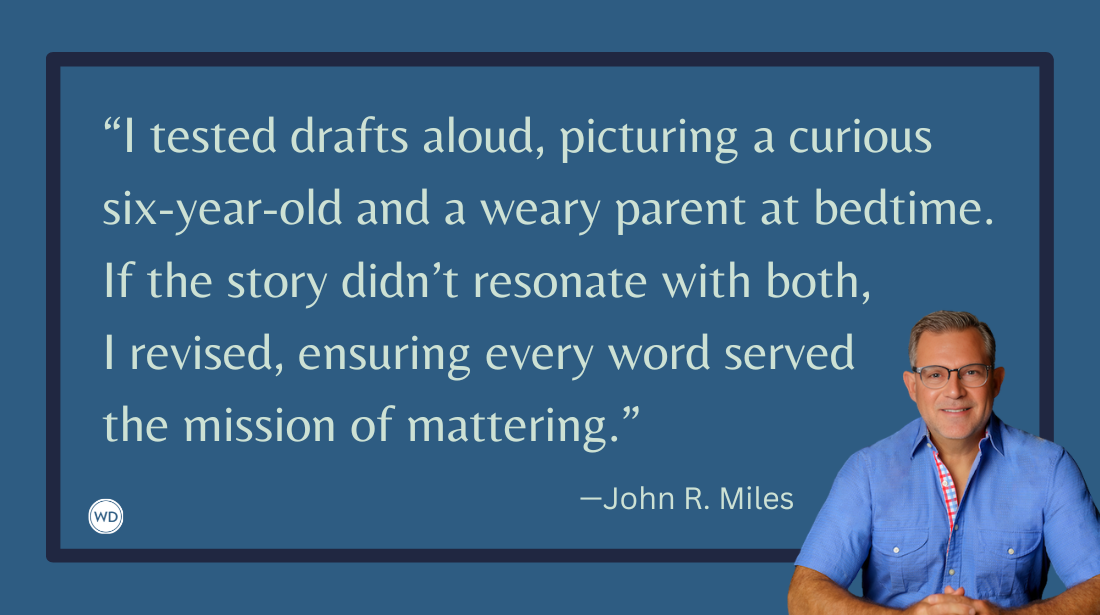The Nature and Value of Loneliness for Writers
Author Don Martin discusses both the nature and value of loneliness for writers and how it’s similar to thirst and hunger for people.
Loneliness is the secret weapon that gave me a publishing career. I realize that doesn’t sound, on its surface, like a unique experience: A lot of creatives have similar origin stories, describing ourselves as lonely kids who didn’t fit in and thus had to develop sparkling personalities and unique senses of humor. We weren’t popular, so we had to be talented. And while I identify with that general arc, that’s not actually what I mean here.
Unlike its emotional siblings—anger, joy, sadness—loneliness is often misunderstood and its purpose in our lives is difficult to pin down. Though, I did try in my new audiobook Where Did Everybody Go?. Think about it this way: You know what it’s like to feel angry. You’re a bit out of control, unstable, mad in all the ways that word could be interpreted. Infatuation, anxiety, revulsion...we know how it feels to feel these things, especially the extremes. The emotions that make us feel like we’ve lost touch with ourselves. Depression is free falling into a deep hole in a dry desert, while elation is floating on a sparkly neon cloud. We use figurative language as we attempt to contextualize them, turn them into art. But there’s another way of thinking about your emotions, and that’s to understand them as tools.
If you’ve seen the Inside Out movies, the next thing I’m going to say may sound like a big ol’ duh statement, but I promise I have a point. Our emotions have a purpose. They aren’t just a strange byproduct of the human condition—though they’re that, too—they are each a product of evolution, and they each have a job to do. Anger, for example, can assist with problem-solving and achieving a desired outcome, at least according to Dr. Heather Lench, a researcher from Texas A&M University. Anger causes us to put more effort into our attempts at overcoming a given problem. Sure, it’s not fun to feel, but it can be useful. A sentiment shared by one of my favorite singers, Alanis Morissette, who has often talked about how anger is a beautiful emotion, one she’s unpacked on the world stage. She’s used anger to become one of the bestselling artists of all time.
We tend to avoid staring directly at our negative emotions. It’s only natural. Feeling good feels good, so we spend a lot of time and energy unpacking or cozying up to ways to get back to feeling good. If we feel something like anger or sadness or loneliness, that’s undesirable, a sign that something is wrong in general or, possibly, wrong with us. Spending too long considering them feels like approaching a ticket counter for a train taking us to a deep hole in a dry desert. We avoid them, but we avoid them to our detriment.
Like anger, loneliness also has a purpose, except it’s less like joy or sadness or the rest of the gang at the animated control panel. It’s more like hunger or thirst. If the control panel crew is on the main level helping us process our daily life through emotional response, loneliness, hunger, and thirst are somewhere down in the lower levels ensuring all the equipment keeps working. These are biological imperatives whose purpose is keeping us alive. Hunger tells us that we need to eat, because eating allows us to have the energy we need to get through our day. Thirst tells us that we need fluids, because we must hydrate and maintain electrolyte levels. Loneliness is something that evolved to tell us to seek other people. We learned a lesson sometime way back up the evolutionary family tree when we were huddled around fires trying not to think of the things with teeth and eyes lying beyond the edge of the fire’s glow: We have a better chance of survival when we are in groups.
Loneliness tells us to seek other people, to form groups, to build social bonds, to create communities and families. It is the impetus to stick ourselves to the web of society so that when something goes wrong, we have a safety net to fall back on. It helps us with basic survival stuff—a strong social network means people are more likely to check in on you, ensuring you take your medication, get exercise, and eat healthy food. But it does other stuff, too, like inspire us to create new kinds of spaces to connect, unwind, and explore our passions.
The key to using loneliness effectively is control. “Loneliness,” by the way, is actually defined by researchers as the difference between the amount of social connection you want and the amount you get. It’s subjective, changing from person to person, and even your own subjective needs can change depending on factors like age and gender or time of year. That difference feels more present, more obvious, and becomes harder to ignore when you lack a sense of control. This is illustrated perfectly by a study where different groups of elderly people who lived in a retirement community each received a certain set amount of visitors. But one group had their visitors pop in at random times, while the other had the visitors come around the same time each day. Despite the fact that the number of visits and time spent visiting were equal, the group who had their visitors show up at an expected time reported feeling far less lonely than the group who received visits at random times. Why? Because it gave them a sense of control, a feeling like your life isn’t happening without your input.
Loneliness has become an epidemic. Don’t shoot the messenger—I didn’t call it that, the US Surgeon General did. It’s been linked to premature death from all causes. It’s said to contribute to everything from IBS to bad knees to heart failure. It also seems to be the cause for the uptick in your ex-boyfriend making ill-advised purchases of podcast equipment, but that’s a different article. However, there’s another framing of loneliness I’d like you to consider.
During the early days of the pandemic when we were in lockdown and making black market deals for toilet paper, my one and only regular connection with a real person that I wasn’t married to was a friend who lived nearby. She, like me, had said for years that if she’d only had the time, she would finally write a book. Well, during lockdown, all we had was time. So we decided to form a little bubble and meet every Sunday to go over what we’d written that week. That regularity, that controllability, is what both kept me sane, and also what helped me learn consistency when it came to writing every day. Getting words down on paper, sharing them with others, and listening to their feedback are “biological imperatives” for writers. They help us grow, to see our work for what it is, and chart a path to where it could be.
I did finally finish that first book, though I didn’t sell it. However, I did get my first book deal around that time, and I’ve been consistently publishing books ever since. And I think I owe it all to listening to the lessons loneliness is trying to teach me. We survive better in groups. We are better prepared to get through life when we do it together. Creating community and controllability, yes, ensures we take our meds and get fresh air, but it can also help us keep up with our word count. We may write alone, but we never write alone.
The author community is wide and welcoming and willing to embrace writers of all experience levels. Maybe for you it’s taking a creative writing class at your local college or joining a weekly meetup at a coffee shop or just getting together with an equally enthusiastic friend on a regular basis. Whatever it is, if you’re looking for the secret to a long and successful writing career, it starts by listening to loneliness and remembering that you will get better faster with the help of your community. Plus, you know, it’s good for your knees, which is always a bonus.








